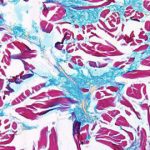As you probably know, the ACR is one of several organizations that has been advocating against the UnitedHealthcare (UHC) Laboratory Benefit Management Program, which was launched in Florida in 2014 and was due to expand to Texas on March 1. The program requires use of certain laboratories and online physician decision support for certain tests,…
Principles Would Streamline Prior Authorization Processes
The ACR recently partnered with the American Medical Association (AMA) and a coalition of 16 other organizations representing physicians, medical groups, hospitals, pharmacists and patients to dramatically reshape prior-authorization protocols. The coalition is urging an industry-wide reassessment of these protocols to align with a newly created set of 21 principles, called the Prior Authorization and…

Baricitinib Is Effective in Patients Treated with DMARDs & Methotrexate
A recent analysis has examined the effectiveness of baricitinib in treating RA patients who suffer from comorbidities and the effect of concomitant use of steroids. Baricitinib proved effective, particularly in patients who had exposure to cDMARDs and corticosteroids…

Full Circle: How Becoming an Educator Reenergized a Rheumatologist’s Career
Career changes can be difficult. But for Stanford Shoor, MD, leaving clinical practice and becoming an educator in the field of rheumatology has been “a renaissance.”

FDA Update: FDA Delays Baricitinib Review & Removes Bupropion & Varenicline Warnings
FDA Review of Baricitinib Delayed The U.S. Food and Drug Administration (FDA) has extended the review period for baricitinib, an investigational medication for treating moderate to severe rheumatoid arthritis (RA).1 Baricitinib is a once-daily oral Janus kinase (JAK) inhibitor currently in clinical studies for inflammatory and autoimmune diseases. The New Drug Application (NDA) for baricitinib…
Rheumatology Coding Corner Answer: Coding for a Knee Injection
CPT: 20611-LT, J7325 X 1 ICD-9: 715.16—Osteoarthritis, localized, primary, lower leg ICD-10: M17.12—Unilateral primary osteoarthritis, left knee Note: When billing for 20611—Arthrocentesis, aspiration and/or injection, major joint or bursa (e.g., shoulder, hip, knee, subacromial bursa), with permanent recording and reporting, there must be a permanent photograph of the needle placement in the patient’s medical chart….

Updated EULAR Recommendations for Early Arthritis; Plus FDA Approves New Abuse-Deterrent Morphine Sulfate
EULAR has updated its recommendations for the management of early arthritis, outlining aspects of diagnosis and drug treatments…

Distinct Autoantigens Found in Patients with Scleroderma & Coincident Cancer
Recent research examined the relationship between patients with scleroderma who are anti-CTP antibody negative and cancer. Combing two complementary technologies, PhIP-Seq and PLATO-BC, researchers identified the POLR3 complex in cancer-associated scleroderma…
Sen. Susan Collins: Trump’s Obamacare Order ‘Confusing;’ Replacement Law Needed
WASHINGTON (Reuters)—U.S. Sen. Susan Collins (R-Me.) called President Donald Trump’s executive order against Obamacare “very confusing” on Monday, saying whatever actions the Trump administration takes, legislation will still be needed to replace the health insurance law. “We really don’t know yet what the impact (of the order) will be,” Collins told reporters, adding that it…
Trump May Not Enforce Individual Health Insurance Mandate
WASHINGTON (Reuters)—The Trump administration may no longer enforce a rule requiring individual Americans to carry health insurance or pay a penalty if they do not, a senior White House official said on Sunday Speaking on ABC’s “This Week” program, Kellyanne Conway, counselor to the president, said President Donald Trump “may stop enforcing the individual mandate.”…
- « Previous Page
- 1
- …
- 480
- 481
- 482
- 483
- 484
- …
- 842
- Next Page »